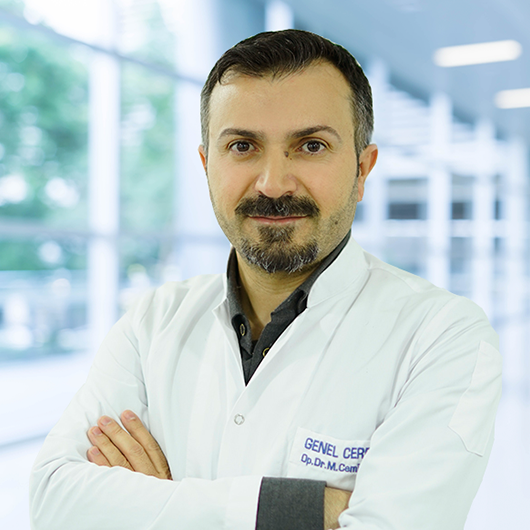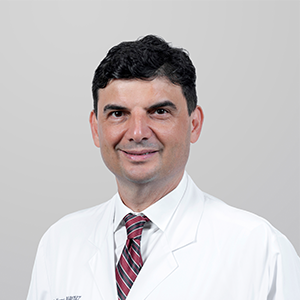Sleeve Gastrectomy (Gastric Sleeve Surgery)
Sleeve gastrectomy, performed within the scope of obesity surgery, is an effective surgical procedure scientifically known as 'Sleeve Gastrectomy.' This surgery is carried out with the aim of combating obesity and achieving permanent weight loss. During the procedure, the stomach is significantly reduced in size, with approximately 80% of it being removed, and the remaining portion is reshaped and resized into a tube-like structure similar to a banana.
Sleeve Gastrectomy (Gastric Sleeve Surgery)
- What Is Gastric Sleeve Surgery (Sleeve Gastrectomy)?
- How Is Gastric Sleeve Surgery (Sleeve Gastrectomy) Performed?
- What Should Be Done After Gastric Sleeve Surgery (Sleeve Gastrectomy)?
Sleeve Gastrectomy (Gastric Sleeve Surgery)
- What Is Gastric Sleeve Surgery (Sleeve Gastrectomy)?
- How Is Gastric Sleeve Surgery (Sleeve Gastrectomy) Performed?
- What Should Be Done After Gastric Sleeve Surgery (Sleeve Gastrectomy)?
What Is Gastric Sleeve Surgery (Sleeve Gastrectomy)?
Gastric sleeve surgery, also known as sleeve gastrectomy, is an effective procedure performed within the scope of obesity surgery. This surgery is carried out with the aim of combating obesity and achieving permanent weight loss. During the surgery, the stomach is significantly reduced in size, with approximately 80% of it being removed, and the remaining portion is reshaped into a tube-like structure resembling a banana.
Gastric sleeve surgery represents a significant advancement in the field of obesity surgery and has provided long-term weight loss and improved health for many individuals.
The sleeve gastrectomy procedure is used to promote weight loss in overweight or obese individuals. This procedure also has an appetite-reducing effect since it removes parts of the stomach where the hunger hormone ghrelin is produced. Additionally, the reduction in stomach volume leads to consuming less food, resulting in a faster sense of fullness. As a result, weight loss occurs, and obesity-related health issues can be reduced or eliminated.
Gastric sleeve surgery is a less invasive method than traditional open surgery and is performed using a laparoscopic approach. This involves using small incisions in the abdominal area through which surgical instruments and a camera are inserted. This accelerates the post-operative recovery process, reduces the risk of infection, and leaves fewer scars.
How Is Gastric Sleeve Surgery (Sleeve Gastrectomy) Performed?
Gastric sleeve surgery is typically carried out laparoscopically. The general steps of gastric sleeve surgery are as follows:
- Anesthesia: General anesthesia is typically administered before the surgery begins. This ensures that the patient is asleep during the procedure and does not experience any pain or discomfort.
- Procedure Initiation: The surgical team makes usually 4-6 small incisions (approximately 1-2 cm each) in the abdominal area for laparoscopic surgery. Through these incisions, a camera and surgical instruments are inserted into the abdominal cavity.
- Preparation of the Stomach: The portions of the stomach called the fundus and antrum, which are the starting areas of the stomach, are separated and removed. This leaves the stomach in a narrower tube-like shape.
- Cutting the Stomach: A cut is made along the stomach, and this cut is stitched to create the new tube-shaped stomach. This significantly reduces the stomach's volume.
- Placement of Stitches: The surgical team sutures the stomach or uses special devices called surgical staplers to seal it in the desired tube shape, preventing leakage.
- Final Steps: When the surgery is completed, the surgical team performs final procedures such as suturing the incisions or closing them with small stitches. After waking up the patient, a monitoring period typically lasting a few hours ensues. Following gastric sleeve surgery, patients usually stay in the hospital for a few days and are put on a special diet program.
- Recovery Process: Doctors recommend that patients change their eating habits and lifestyle during the post-operative period. Additionally, follow-up and support programs are provided after the surgery.
What Should Be Done After Gastric Sleeve Surgery (Sleeve Gastrectomy)?
A careful follow-up and lifestyle changes are required after gastric sleeve surgery. Below are some recommended steps after gastric sleeve surgery:
- Diet and Nutrition: It is crucial to adhere to a diet plan recommended by your doctor during the post-operative period. Typically, the diet begins with liquids immediately after surgery and gradually progresses to solid foods. The recommended diet is often low in calories, rich in protein, and nutritious. Additionally, consuming small portions frequently is important.
- Fluid Intake: Ensuring an adequate fluid intake is essential during the post-operative period. Water is the most important fluid to consume. Avoid alcoholic and carbonated beverages. Your doctor will provide specific recommendations regarding fluid intake.
- Vitamin and Mineral Supplements: After gastric sleeve surgery, some vitamins and minerals may be deficient due to reduced nutrient absorption. It's important to regularly use supplements recommended by your doctor. These supplements often include iron, calcium, vitamin D, and vitamin B12, among others.
- Exercise: Physical activity is essential to support weight loss and improve overall health. Your doctor will help you determine an appropriate exercise plan during the post-operative period. Low-impact exercises such as walking, swimming, and cycling are often recommended options.
- Psychological Support: Gastric sleeve surgery involves both physical and emotional changes. Obtaining psychological support during this process is important. Joining a support group or consulting with a psychologist can be helpful.
- Regular Follow-ups: Regular follow-up appointments allow your doctor to monitor your progress and make adjustments as needed. These appointments typically evaluate weight loss, nutritional status, and vitamin and mineral levels.
Doctors
List of doctors under the HOP of the corporation




